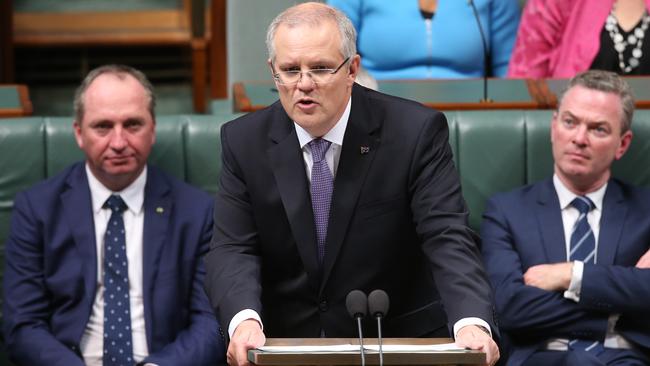Superannuation changes are coming, take advice now
LAWS governing superannuation will change from July 1, so it’s important to get advice and understand the implications before that date, writes David Koch.

Opinion
Don't miss out on the headlines from Opinion. Followed categories will be added to My News.
SUPERANNUATION planning over the next week has never been more important because a raft of changes from the previous two federal Budgets come into effect on July 1.
Major changes come with the government lowering how much you can contribute from this year on — so you really need to see how that affects you and how to best take advantage of it before changes actually happen.
I can’t stress enough that if you have been using superannuation as your primary wealth-building platform, you need to talk to your accountant or financial adviser because planning strategies will change significantly.
The new cap of $1.6 million a person of super investments may cause people to rethink their plans. It can be complex, so you need advice.
Investments in superannuation above that new level will still enjoy a range of attractive tax concessions … just not as attractive as before.
Concessional super contributions are typically those that you claim as a tax deduction, such as your 9.5 per cent super guarantee contributions or salary sacrifice.
For those under 48 years of age, the maximum amount you can contribute will fall from $30,000 this year to $25,000 next financial year and for those aged 49 or over, the current limit of $35,000 will also drop to $25,000.
The penny pinching doesn’t stop there. A lot of people contribute extra superannuation that doesn’t qualify for a tax deduction because investment returns under the super umbrella receive tax concessions.
In other words, while there is no tax advantage to the extra contributions, there are tax advantages on the returns while in there.
The limit for these “non-concessional” contributions has been $180,000 for a number of years but from July 1 it will drop to $100,000.
There is also a “bring forward rule” for those who had a lump sum, from an inheritance or a sold property, for example, where you can have three years worth of non-concessional contributions all at once. That’s three times $180,000, or $540,000.
With the reduction of the non-concessional limits, that “bring forward rule” maximum drops to $300,000 as of July 1.

The gender gap in superannuation is still because women historically have a lower average salary and in many cases may also take some time off work to raise children.
As a result they do retire on a lower average account balance.
For couples, when you retire you both want to make use of the retirement benefits under super, so it is worthwhile to both have decent levels of super — not just one.
Spouse contribution splitting can help. That is where you can split the concessional, or pre-tax contribution, to your partner.
The only unusual point on this, though, is that you only nominate how much you want to split in the year after. So this year you look backwards to last year’s contributions and split them.
When it comes to Self-Managed Superannuation Funds, there are some interesting changes that are worth noting. Apart from the changing contribution and bring forward rules, which apply to everyone, there are some tweaks to transition to retirement rules and the continuing crackdown on holding art and collectables in the investment portfolio.
They must be held in a vault and specifically can’t be stored in a related party’s private residence for enjoyment.
So that’s the picture: no more paintings hanging up at home if they are owned by your Self-Managed Super Fund.
July 1 also sees a new scheme to help first-home buyers with the First Home Super Saver scheme.
Under that, people are allowed to dip into their super to raise a first-home deposit.
There are strict rules around that, as you first need to make voluntary contributions of up to $15,000 per year, and up to $30,000 in total, to superannuation from July 1 — they can then be withdrawn from July 1, 2018.
Recent research has shown for Gen Ys around the age of 25, buying a property was the number one goal for most of them, so they really like this initiative.
Interestingly, they also said they already had three different super funds and really didn’t know what to do with them.
Another important point is to not forget to protect your most important investment — you.
While insurance is not always at the front of people’s minds, it is an important safety net for the family and some insurance like income protection (those premiums are tax-deductible) and life insurance (which can be under superannuation and premiums paid from your pre-tax contributions) are just essential safeguards for your financial wellbeing.
David Koch is a consumer finance commentator and broadcaster


